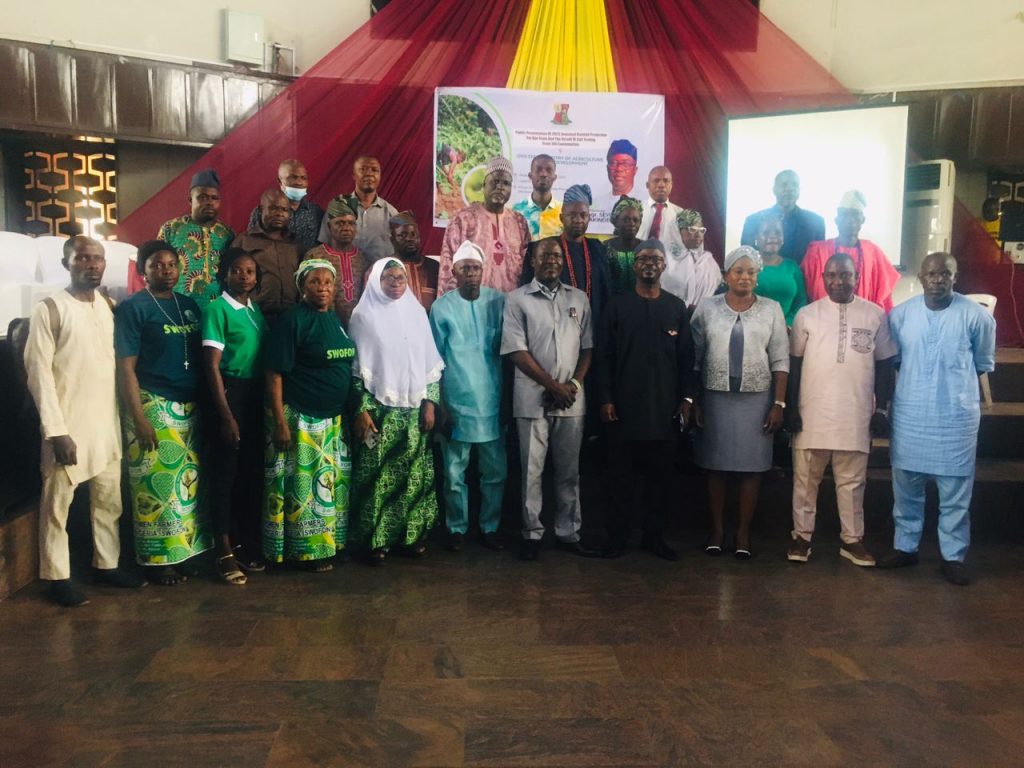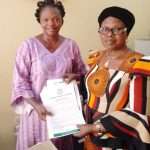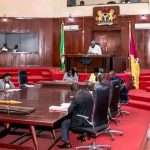

The Oyo State government has successfully trained over 22,000 farmers across the state, equipping them with vital knowledge regarding weather predictions that will significantly impact agricultural production.

During the event at the House of Chiefs, Secretariat, Ibadan, on Tuesday, the Commissioner for Agriculture and Rural Development, Olasukanmi Olaleye, announced the results of a digital soil testing initiative conducted in 100 communities.
This initiative, he said, is aimed to assess nutrient levels and evaluate soil fertility, providing critical insights for enhancing food production and increasing crop yields.
Olaleye emphasised that the programme not only aims to improve the livelihoods of smallholder farmers but also positions Oyo State as a centre for investment, innovation, and economic growth.
He noted, “The annual seasonal climate prediction serves as an early warning system, supplying essential information on the rainy season’s onset and cessation, cropping period length, annual rainfall projections, potential dry spells, and temperature variations.”
According to the 2025 Seasonal Climate Prediction from the Nigerian Meteorological Agency (NIMET), Oyo State is anticipated to experience varying dry spell conditions across different Local Government Areas.
“This sensitization on weather forecasting marks the beginning of a new agricultural planting season. Our goal is to prepare farmers with the necessary knowledge to enhance agricultural productivity throughout the state,” he added.
The commissioner expressed gratitude to Governor Seyi Makinde for his dedication to advancing agriculture and improving the welfare of farmers and citizens.
He highlighted initiatives like the “Sustainable Action for Economic Recovery (SAFER)” programme, launched in 2023, which focused on ensuring food security and sustainable livelihoods in the state.
The commissioner recalled that the establishment of the Oyo State Seed Coordinating Committee (OYSSC) has strengthened stakeholder engagement in agricultural productivity, improving food security and farmers’ livelihoods through access to quality seeds and capital.
“The digital soil testing project, a collaborative effort involving the Ministry of Agriculture and Rural Development, smallholder farmers, private sector partners such as OCP Africa, and community groups, has yielded significant results, including soil fertility assessments and the registration of 22,370 smallholder farmers.”
“The initiative aims to enhance agricultural knowledge, increase yields, reduce blanket fertilizer application, and promote sustainable agricultural practices.”
Olaleye stated, “These achievements will not only elevate the lives of smallholder farmers but also establish Oyo State as a hub for investment and economic growth. Investors can now easily access information on soil fertility status across the 100 communities.”
In a goodwill message, Chairman of the All Farmers Association of Nigeria, Oyo State Council, Mr. Adewunmi Abass, a praised the government’s initiatives to bolster agriculture and food security.
He encouraged farmers to adopt smart agricultural practices to effectively tackle challenges, emphasising the importance of preserving natural resources for future generations.
“The path forward lies in our collective commitment to adopting smart agricultural practices that not only foster resilience against climate change but also promote sustainable and profitable farming.”
“Let us recognize our role as stewards of the land, working to ensure a safer, more sustainable future for generations to come.”
“Together, we can turn the tide against climate change and secure a thriving agricultural landscape for Nigeria,” he stressed.
In his remark, an agricultural expert from IITA, Prof. Marufat Balogun, highlighted that the programme will train farmers in moisture control, the use of drought and flood-tolerant crop varieties, and storage facilities.
In her address of welcome, the Permanent Secretary of the Ministry of Agriculture and Rural Development, Mrs. Abosede Owoeye, stated that this initiative supported the state’s broader goals of promoting climate-smart agricultural practices.
The event was attended by various stakeholders in the agricultural sector and local farmers, marking a significant step towards enhancing agricultural resilience in the state.









